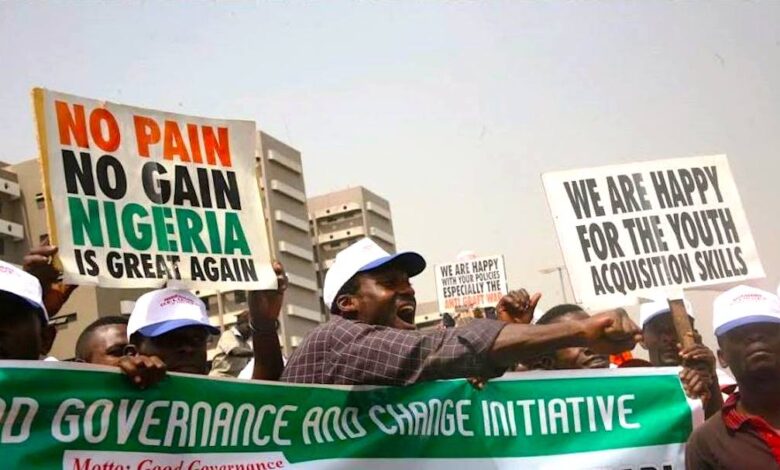‘Vacuum Of Transparency In Nigeria’s Civil Society Space’ — Examining The Claims
A widely published article questions levels of accountability among civil society organisations in Nigeria, but not all its facts are accurate.

In recently published articles, author Ibrahim Tanko Salisu argues that Nigeria’s civil society space might be full of “opportunists with self-centred intents using the platform as a money making enterprise”.
Salisu said in the three–part series that non-governmental organisations need to be more accountable as “they spend the larger chunk of donated funds on their lavish lifestyle instead of spending for the targeted beneficiaries”. He also claimed that the officials often operate from five-star hotels, have offices in highbrow areas, and drive luxurious cars using project funds.
“Their luxurious lifestyles mixed with the lack of transparency makes their credibility questionable knowing they don’t have any means of income aside international grants,” he wrote.
To support this statement, he makes certain claims and cites past instances of non-governmental organisations getting indicted. It is not the first time people would call for increased regulation of the activities of non-governmental organisations in Nigeria because of perceived rampant irregularities.
We check which of Salisu’s claims are true and which are false or misleading.
Over $474 million mismanaged by NGOs
Claim: “In 2011, an international donor named Global Funds petitioned the ICPC over discovery of heinous frauds in the course of auditing 15 grants awarded to 7 NGOs amounting to $474,519,260 (Four Hundred and Seventy-Four Million, Five Hundred and Nineteen Thousand, Two Hundred and Sixty Dollars) which was disbursed between 2003 and 2009 earmarked to fight AIDs, tuberculosis and malaria in Nigeria.”
Verdict: Misleading.
The report of the country audit conducted by The Global Fund confirms that it focused on grants worth $682 million (out of which $474.5 million had been disbursed) and did not say all that money was subject to “heinous fraud”. Out of that sum, the report only recommended that $7 million (1.5 per cent) should be recovered, being unsupported expenses or expenses not in line with the grant work plans.
The audited organisations included five NGOs and two government agencies. The report observed that the organisations needed to improve their financial controls, compliance with grant agreements, operating standards, and commercial practices.
Like Salisu’s article, Vanguard Newspaper’s report of July 2011 was also written in a way that could be interpreted differently to suggest that the accusation of mismanagement pertained to the $474.5 million. “The donor-body insisted that it discovered the heinous fraud in a recent audit of 15 grants amounting to US$474,519,260, which it said was disbursed between 2003 and 2009, for the purpose of saving lives in the country,” the paper had stated.
Mama Boko Haram’s conviction
Claim: “In June 2022, the High Court of Borno state sentenced Ms Aisha Wakil (Chief Executive Officer of Complete Care and Aid Foundation) to a 5-year imprisonment over fraud.”
Verdict: True.
Aisha Wakil, also known as Mama Boko Haram, was sentenced to imprisonment after a trial by the Economic and Financial Crimes Commission (EFCC) that started in 2020.
Tax/CAMA/SCUML compliance survey
Claim: “In March 2021, a survey was conducted by the European Union Agents for Citizen-Driven Transformation (EU-ACT) to establish the current levels of compliance with the legal frameworks amongst it supported CSOs/Networks/CBOs in Abuja, Lagos and 8 other states. The results of the survey indicated that out of 119 sampled, a third of them were compliant with the CAMA law, less than 10% of the CSOs were fully tax compliant and 14% of the CSOs were SCUML complaint. The NGOs/CSOs attribute non-compliance of existing regulations to lack of requisite knowledge and information about the laws.”
Verdict: Insufficient evidence.
Available publications indicate that, in 2021, the Agents for Citizen-driven Transformation (ACT) Programme conducted a survey to determine levels of compliance with legal frameworks by local CSOs. The result of this survey could, however, not be obtained.
Non-publication of financial statements
Claim: “A random check at the websites of active CSOs in Nigeria shows less than 20% of them publish their financial statements, thus furthering suspicion about their activities.”
Verdict: Insufficient evidence.
The author did not provide details of the websites checked or how he arrived at the “20 per cent” estimate.
Tenure limit for NGO leadership
Claim: “Most of the Nigerian Non-Profit Organizations have sit tight Chief Operating Officers who are permanently at the helms of affairs like monarchs contrary to the dictates of World Association of Non-Governmental Organization (WANGO) which stipulates there should be a tenure and a time limit for the leadership of an NPO.”
Verdict: Misleading.
The provision of the WANGO Code of Ethics regarding term limits applies to members of the governing body, not directors. “Term limits are to be established for membership on the governing body. Consideration should be given to both the maximum number of years that can be served in an individual term and the number of consecutive terms allowed,” the document states. “It is generally preferable to limit board service to a maximum of three-year terms and three consecutive terms, with at least one year required before a member becomes eligible for re-election after completing the maximum number of consecutive terms.”
Support Our Journalism
There are millions of ordinary people affected by conflict in Africa whose stories are missing in the mainstream media. HumAngle is determined to tell those challenging and under-reported stories, hoping that the people impacted by these conflicts will find the safety and security they deserve.
To ensure that we continue to provide public service coverage, we have a small favour to ask you. We want you to be part of our journalistic endeavour by contributing a token to us.
Your donation will further promote a robust, free, and independent media.
Donate HereStay Closer To The Stories That Matter




